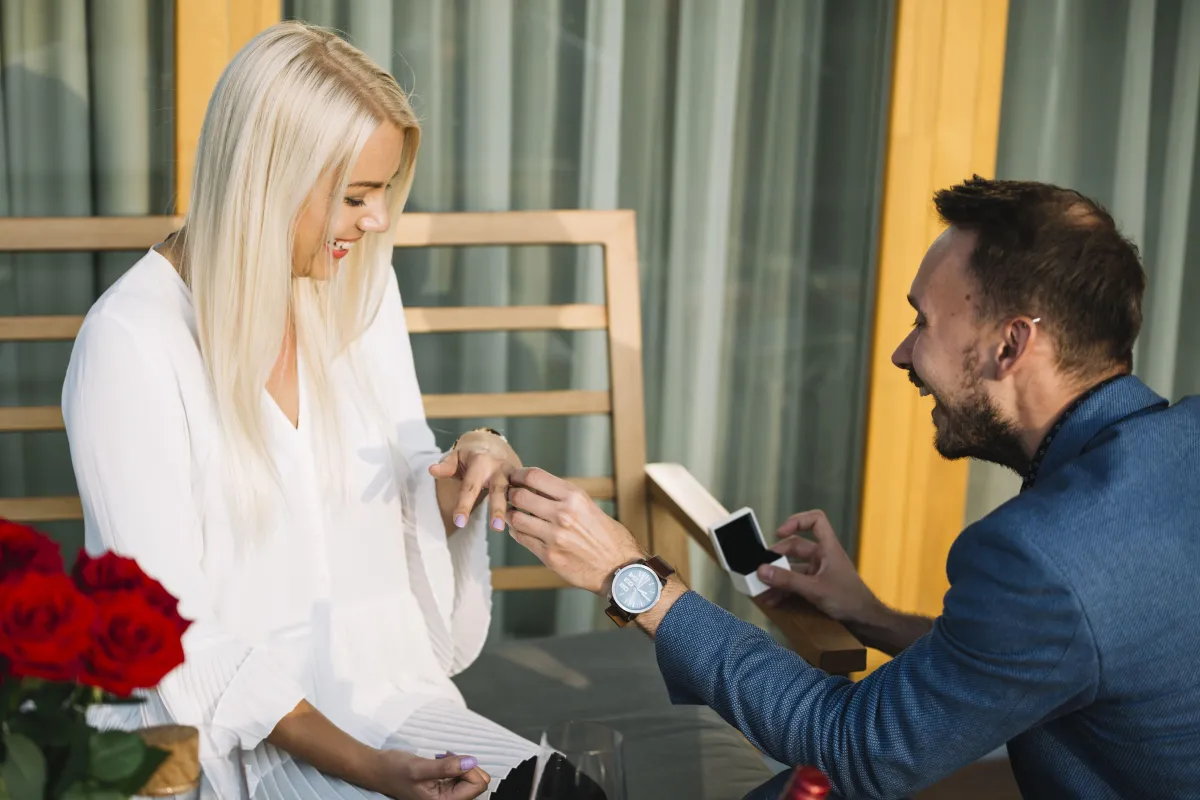How to Cope with Divorce When You Still Love Him: Healing Without Closure

Introduction
Still loving your ex-husband doesn’t make you foolish. It makes you human.
Maybe you didn’t want the divorce. Maybe you were blindsided. Or maybe you agreed to it but didn’t expect the grief to hit this hard. Whatever your story, if you’re here thinking, “I still love my ex-husband… So how do I move on?” — know this:
You are not alone.
Your feelings are valid.
And healing is still possible—even when love lingers.
In this guide, we’ll explore:
Why you still love him
How to sit with emotional pain without being consumed by it
What not to do when you feel stuck in love
Gentle steps to emotionally detach and reclaim yourself
Where to find support that truly understands
You don’t need to erase your love to begin healing. Let’s honor it—without letting it hold you back.
Why You Might Still Love Him
You Didn’t Want the Divorce
Sometimes the pain isn’t just about loss—it’s about powerlessness. If you didn’t choose the divorce, it can feel like your heart was dragged behind someone else’s decision.
You’re mourning not just what was, but what could have been—a future you were still invested in.
Long-Term Emotional Bonds Don’t Break Overnight
Even if the relationship was painful or unbalanced, emotional bonds—especially after years together—run deep. You may be experiencing:
Nostalgia for the good moments
Trauma bonding if the relationship involved emotional highs and lows
Genuine enduring love, where you still see the good in him
Let go of the idea that “I should be over this by now.” You don’t heal on anyone’s timeline.
Love Is Not a Switch — It’s a Process
Feelings don’t follow logic. You can know someone isn’t right for you and still love them. You can recognize the toxicity and still miss the touch.
“You can love someone and still decide they are not right for your life.” – Unknown
Letting go isn’t about denying love. It’s about choosing peace over attachment.
How to Sit With the Pain Without Letting It Consume You
What You’re Feeling Is Real — and Valid
It’s tempting to minimize your feelings or shame yourself for still being in love. But pushing those emotions down won’t help. In fact, it can prolong your pain.
Grief over a divorce—especially one from someone you still love—is complex. It includes:
Emotional longing
Identity confusion
Even physical symptoms like exhaustion, nausea, and insomnia
According to the APA, emotional recovery from divorce typically takes 1–2 years, depending on the depth of the relationship.
Create Space to Grieve the Relationship Fully
You’re not just grieving a person—you’re grieving:
Future holidays you imagined
Growing old together
The inside jokes, routines, shared history
This kind of loss deserves full grief. It’s okay to:
Cry daily
Talk to the version of him that lives in your head
Miss him and still not want him back
Journaling, Crying, Meditating — Tools to Express Without Judgment
Try the "Unsent Letter" exercise:
Write a letter to your ex as if you could say anything.
Say what hurt. Say what you miss. Say goodbye.
Then burn it, shred it, or save it—but don’t send it.
Also consider:
Guided meditations for heartbreak
Crying in the shower (it’s a safe, private space)
Daily journaling prompts like:
“Today, I wish I could tell him…”
“Loving him taught me…”
What NOT to Do When You Still Love Him
Don’t Beg, Chase, or Reopen the Wound
Every time you text, check his social, or ask “Can we talk?”, you're reopening a scab that’s trying to heal.
Emotional relapses are normal—but giving in to them can prolong the grief.
Set limits:
Block or mute him temporarily if needed
Ask a friend to help you stay accountable
Remember that no new conversation will erase the old pain
Don’t Suppress or Numb the Feelings
Pushing feelings down often leads to:
Anxiety
Depression
Unexplained physical symptoms
Don’t feel weak for crying. Don’t feel crazy for missing him. Don’t drown your pain in alcohol, rebound flings, or overworking.
What’s not expressed will eventually demand your attention.
Don’t Let Hope Override Reality
Redefining “You” After Divorce
Hope can be comforting—but also dangerous. Holding onto false hope can keep you stuck in a fantasy.
Instead, try Radical Acceptance — a concept from Dialectical Behavior Therapy (DBT):
“This is happening. I don’t have to like it. But I accept that I cannot change it.”
Acceptance isn’t defeat. It’s the first breath of freedom.
Steps to Emotionally Detach and Reclaim Yourself
Emotional Boundaries – Redefine the Relationship (Even If Co-Parenting)
If you still have contact (e.g., co-parenting), shift how you engage:
Keep conversations transactional, not emotional
Don’t seek validation or flirtation
Avoid sharing your feelings unless it’s part of closure
You’re redefining the emotional contract. He is no longer your comfort zone.
“Love Doesn’t Mean You Have to Stay” – Reframing the Narrative
It’s possible to:
Love him and leave him
Miss him and not go back
Remember the good and still choose yourself
“Healing after divorce from someone you love is like carrying two truths: I still love him. I know I must move on.”
Pour That Love Back Into Yourself
All that love you have for him? Redirect it:
Nurture your body with good food, rest, and gentle movement
Take up a creative outlet (art, music, writing)
Practice self-talk that’s kind:
“I am worthy, even when I feel broken.”
“My love is not wasted—it was real, and so is my healing.”
Who Can Help You Heal
Talking to a Therapist or Divorce Coach
Therapy isn’t just for the broken—it’s for the becoming.
A therapist gives you:
A container for your emotions
Tools to manage grief
A mirror for your worth when you forget it
Recommended expert: Kevin Van Liere
Joining a Support Group of Others Who Understand
Sometimes the most healing words are:
“I’ve been there too.”
Find community through:
Facebook groups for women post-divorce
Local or virtual support groups
Podcasts like The Love, Happiness & Success Podcast
These spaces remind you: you’re not alone.
Final Words: Love Doesn’t Disqualify You From Healing
You are allowed to:
Miss him
Cry about him
Still feel love for him
AND
Set boundaries
Choose healing
Build a new life
Love doesn’t mean you wait. Love doesn’t mean you chase.
Love means honoring what was—and trusting that what’s next can still be beautiful.
You can give yourself closure. You can give yourself peace.
Related Posts

When to Start Dating Again: Signs You’re Ready
After divorce, the idea of dating can feel like stepping into a storm—exciting, but scary. You might wonder if you’re ready or if it’s too soon to try. At Rebuilders International, we’ve spent over 40 years helping people find clarity with our proven approach, backed by the Fisher Divorce Adjustment Scale (FDAS). This isn’t about rushing into love—it’s about knowing you’re ready to connect authentically. Here’s how to spot the signs and take that step with confidence.
Why Timing Matters for Dating
Jumping into dating too early can stir up old wounds, but waiting forever might mean hiding from life. Friends might nudge you to “get back out there,” but readiness isn’t about a calendar—it’s about your heart. Our method, tested by thousands, shows that dating works best when you’re grounded in yourself. The FDAS, with its .93 reliability, proves emotional clarity makes all the difference. Let’s explore the signs you’re there.
5 Rebuilders Signs You’re Ready to Date
These signs, drawn from our 10-week workshop, use our unique tools to help you know when you’re ready, rooted in trust and self-awareness:
You’re Done with “What Ifs”
If your mind’s no longer stuck on “Why did it end?” or “Could I have fixed it?” you’re moving forward. Our free self-test checks your disentanglement score—high scores mean you’re free from past loops. A group member said, “I stopped replaying the past and started seeing the future.” This clarity, like our thinking-phase work, shows you’re ready for new connections.You Feel “I Am Enough”
Dating from a place of lack invites old patterns. Our core belief? You’re a “gem,” whole as you are. If you can say, “I am enough,” and mean it, you’re on solid ground. A woman in our support group said this gave her confidence to chat without needing approval. This self-worth, tied to our identity tools, is a green light for dating.You Enjoy Your Own Company
If alone time feels peaceful, not lonely, you’re likely ready. Our groups teach that liking yourself is the foundation for liking someone else. One client said rediscovering solo hikes made him excited to share that joy. Check your self-test’s self-worth score—strong numbers here mean you’re not dating to fill a void, a key from our identity phase.You Trust Your Boundaries
Readiness means knowing what you want—and what you won’t accept. Our exercises, like listing your “must-haves,” help you set clear boundaries. A man in our online groups said this stopped him from chasing unhealthy matches. If you feel confident saying “no” kindly, our relationship-phase work shows you’re prepared to date.You’re Curious, Not Desperate
If you’re excited to meet someone new—not to fix your life, but to share it—you’re in the right headspace. Our “needs check-in” tool asks, “What do I want?” A participant said feeling curious about a date’s story, not their “potential,” was her sign. High social trust scores on our self-test signal you’re ready to connect from care, not need.
Dating on Your Terms
Knowing when to start dating again is about trusting yourself, not checking a box. Our structured approach has helped thousands since 1974, with workshop completers since 2021 showing stronger social trust via FDAS scores. You can step into dating with clarity too, one honest moment at a time.
Need Clarity? We’re Here
Figuring out if you’re ready can be tricky, but our programs—online, in-person, or self-paced—offer tools and a community to guide you. Visit our homepage or book a free clarity call. Want to start small? Join our free support group Tuesdays online.
You’re Ready When You Say So
You’re built for connection on your own terms. What’s one sign you’re noticing in yourself today? Share below—we’re cheering for you!


